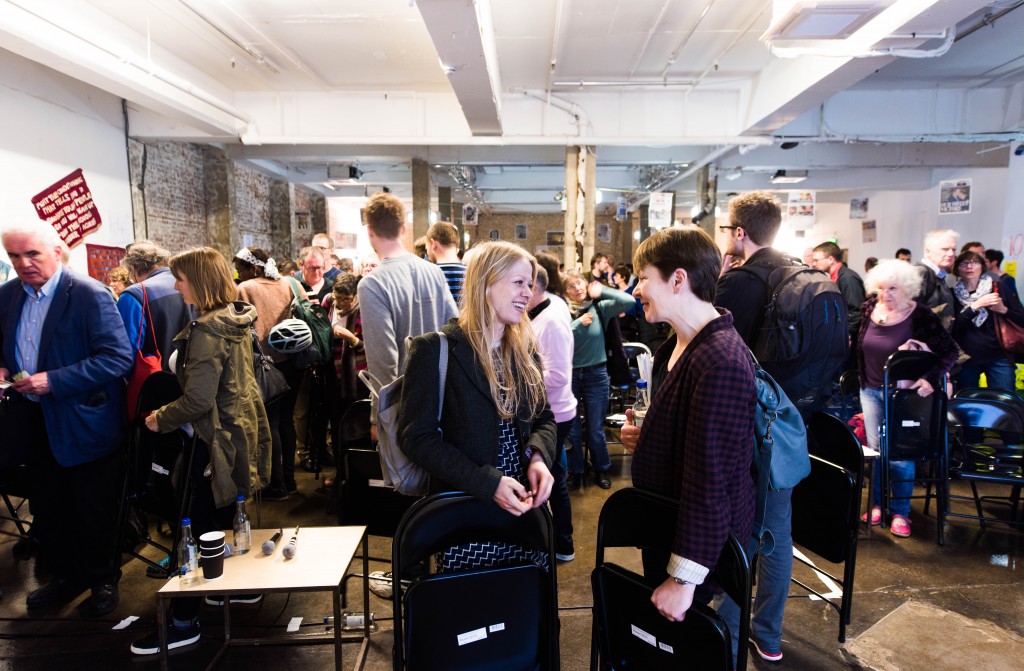The election of Jeremy Corbyn as the leader of the Labour Party has changed the landscape on the left of British politics. It has resulted in a fractious and disunited parliamentary Labour party but a surge in Labour party membership. While some in the Green Party have welcomed the election of Corbyn, the threat to that party is obvious: how many of the new members who joined the Green Party in 2015 have or will switch to Labour?
Against this background, a recently published e-pamphlet, Green Politics and the Left from Green House Think Tank sets out the case for ‘clear green water’ between the Corbyn Labour party and the Greens.
Firstly, there is the issue of economic growth. Corbyn and McDonnell, in the long standing tradition of Labour politics, see increasing economic growth as a how they are going to end austerity. While there is much welcome support in the Corbyn programme for renewable energy and carbon reduction, on a key litmus test of whether he recognises the environmental limits to growth, he supports a new runway in the South East – just at Gatwick rather than Heathrow.
The Left has traditionally been about trying to get a bigger slice of the economic pie: higher wages at the expense of profits for capital. The issue is the price of labour. But, one of the authors of the pamphlet, Rupert Read, argues that for Greens the issue is the commodification of labour in the first place, along with that of land and money. His argument draws on the work of Karl Polanyi, who called labour, land and money fictitious commodities: real commodities are produced for sale on the market, and their supply responds to market demand, but labour, land and money are not produced for sale and problems come when you treat them as if they are. The issue for Greens is not merely the price of labour but how to put into reverse the commodification of labour, land and money. Read suggests that the Land Value Tax, Citizens Income and reform are all policies which help to do this.
Secondly, there are fundamental differences in political philosophy between socialists and Greens. I argue that Green political thought is more republican than it is socialist. This is not to say that it has anything in common with the Republican Party of the United States, or that it is particularly concerned with the abolition of the monarchy. Rather, that at its heart is a concern for the shared public world, the res publica. For Greens the essential shared public realm is the natural environment. The starting point of politics for Greens is that we are part of the earth and that our current way of life is disrupting the systems of the earth, despoiling nature, destroying other life on earth, and ultimately threatening the extinction of human life. This is a different starting point from the socialist one of class inequality and injustice. It means, for example, that there is a clear consensus for and against particular technologies amongst Greens: anti nuclear, pro wind and solar; anti the car, pro the train and the bike; anti GM, pro organic agriculture, because technology mediates the impact our activities have on the earth. In contrast the Labour party is split on many of these issues, some for, some against nuclear power and nuclear weapons; at one point promising an ‘integrated transport system’ which will enable people to leave their car at home, then backing off from making motoring more expensive because of fears of being ‘anti-car’. Jeremy Corbyn may ride a bike, but many of the rest of his party do not and have campaigned for more road building, not for safer cycling.
Jeremy Corbyn therefore, while welcome as a leader of the Labour party, does not mean that the Green Party is not now needed as much as ever. Corbynistas need to avoid getting mired in internal Labour party battles and instead work cross-party, including with Greens if they are going to avoid a re-run of the 1980s. A strong green movement is needed to challenge the Labour party’s addiction to growthism. We need to find alternative solutions to problems such as inequality and the state of the public finances, ones fit for the 21st century world of climate change and dwindling resources.
Green Politics and the Left will be launched at Progressive Politics in Britain, to be held at the Adrian Cadbury Lecture Theatre between 18.00 and 20.00, Aston University in Birmingham, on Tuesday 16 February 2016.
Anne Chapman is a former Green Party City Councillor, a member of Green House Think Tank, and one of the authors of Green Politics and the Left.

